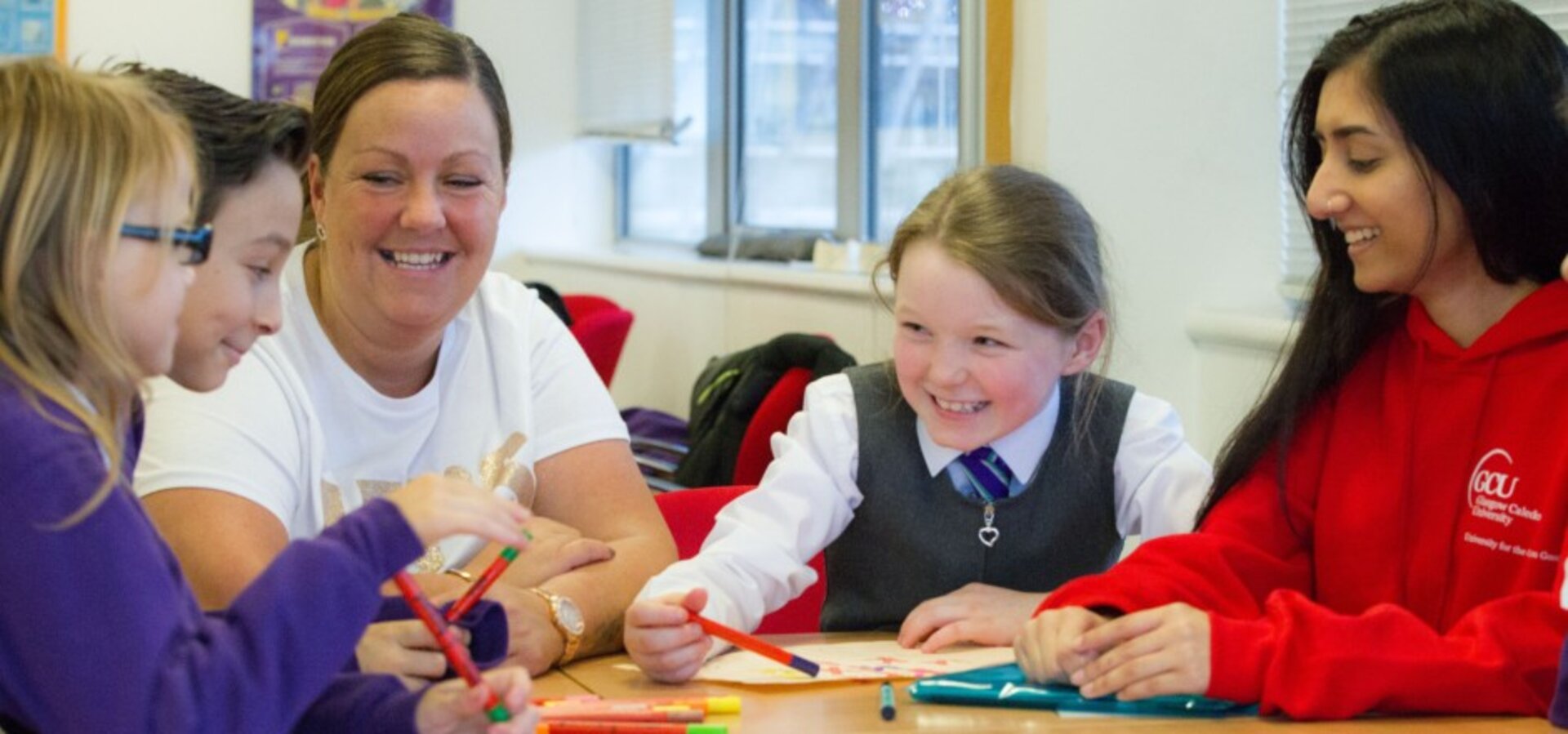Providing access to higher education

Glasgow Caledonian University is celebrating its own achievements on World Access to Higher Education Day (WAHED).
The event, now in its fourth year, is the only established global conference tackling issues of inequity in access and student success in higher education.
GCU has long pioneered widening participation, via our Outreach & Transition Support department, which consists of five teams – School Connect, College Connect, the Caledonian Club, Routes for All and the Advanced Higher Hub – which cover the areas of outreach, widening participation, articulation and transition support within partner schools, colleges and communities, both in Glasgow and within GCU itself.
We take a look at what the teams have been doing to ensure widening participation has continued during the COVID-19 pandemic.
Advanced Higher Hub
GCU's on-campus centre to deliver Advanced Higher programmes to pupils from targeted Glasgow secondary schools, the Advanced Higher Hub was established in 2013 to supplement and complement Glasgow City Council’s provision of SCQF Level 7 qualifications targeted at pupils residing in the most deprived communities. GCU is the only university in Scotland to deliver this kind of year-long immersive bridging and transition programme to widen access to higher education.
The Hub’s move to online delivery, and subsequent development of a blended model of delivery during the COVID-19 pandemic, presented an excellent opportunity to reach pupils outwith Glasgow and extend the Hub’s added value as a university-bridging and transition experience for S6 pupils. In 2021-2022, the Hub entered a partnership with Dumfries and Galloway Council via the South West Education Improvement Collaborative to provide a pilot programme of three Advanced Highers: Biology, English and Modern Studies. These National Qualifications are delivered alongside the Hub’s university bridging programme via weekly online teaching and learning sessions and on-campus visits for pupils from across the region to experience and prepare for student life.
Caledonian Club
The Caledonian Club endeavours to raise the educational aspirations of its members and build key life skills and confidence in nursery, primary and secondary pupils and their families. The Club works with primary school pupils from five of Glasgow’s most deprived communities to provide exciting learning opportunities and challenge the attainment gap.
More than 200 P2 pupils participated in online activities focusing on reading comprehension following concerns raised in schools over the impact of lockdown on pupils’ literacy levels. Thirty pupils have also received additional literacy intervention through a mixture of blended delivery, focusing on phonics and tricky words. Finally, at primary level, almost 500 P5 and P6 pupils have embraced COP26 and worked with the Club to learn more about climate change and the positive role they have in making change.
In addition, School Connect and the Caledonian Club have embraced the challenges of distance-based delivery to provide ongoing support to S5 and S6 pupils, many of them first-generation university applicants, through a series of interactive online modules encouraging pupils to make informed decisions about university courses, careers, as well as guiding them through the UCAS process where applicable. As part of the UCAS Mentoring programme, pupils have been able to undertake online degree subject taster lectures delivered by academics and PhD students from across GCU, offering their expertise and insight.
College Connect
The College Connect team provides transition support to college students articulating to Glasgow Caledonian University and has continued to provide engaging, interactive online transition modules to students entering GCU from college. These students include those who will be articulating into levels two and three at GCU, as well as students entering GCU through the Scottish Wider Access Programme.
During the summer of 2021, an average of 1,065 students completed online transition modules, preparing those students for study at GCU.
Although the data analysis for this cohort is not yet complete, College Connect, on average over the past few years, has had more than 33% of attendees come from the most deprived postcodes, with a further 20% living in deprived areas ranked three and four. We expect this to be similar again for the Summer 2021 cohort.
